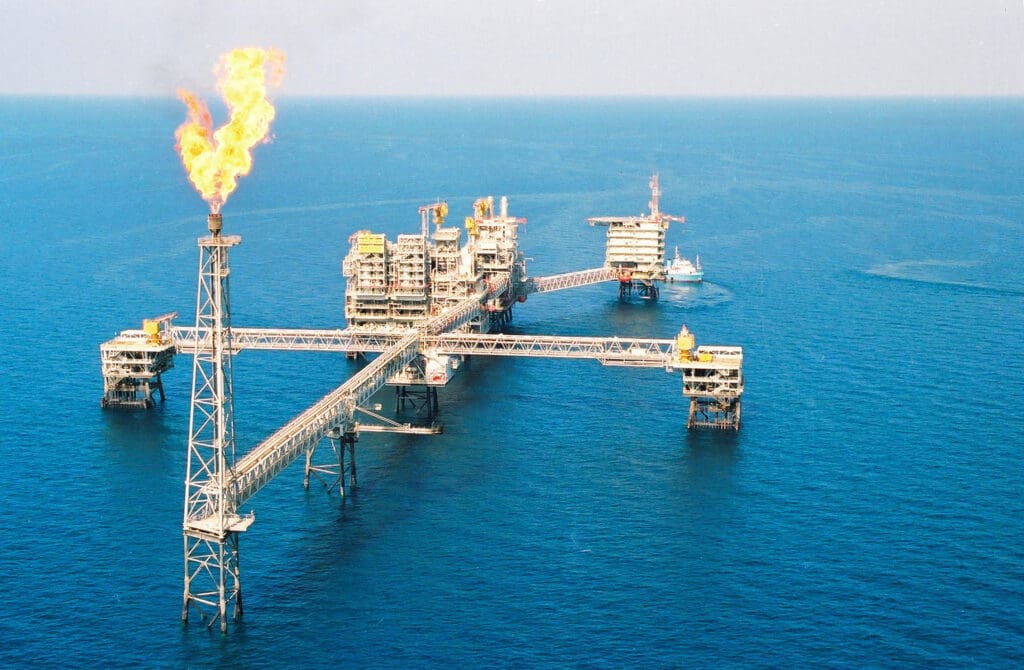Imagine having a neighbor who spent decades accumulating massive debts to build a lavish mansion and enjoy a life of wealth and opulence. Now, when the debt collector arrives, the neighbor demands that everyone on the street—no matter how little they borrowed or their financial circumstances—share in the repayment burden. It is hard to imagine anyone considering this arrangement fair.
Nevertheless, for many countries in the Global South, that is the reality of climate negotiations. While the Global North built its prosperity and geopolitical power through centuries of unchecked emissions and resource extraction, including from the Global South, the burden of tackling the climate crisis is being unfairly shared, falling heavily on countries that contributed the least to the problem and have the fewest means to address it.
As the world accelerates its transition towards a low-carbon future, Qatar—one of the world’s largest exporters of liquified natural gas (LNG)—faces a complex strategic dilemma. The small Gulf state is often perceived as less vulnerable economically to global climate change mitigation efforts, such as the global shift away from oil dependence, and as less responsible for carbon emissions compared to major oil-producing nations. However, its significant economic reliance on natural gas still makes it vulnerable as the world advances toward a less carbon-intensive energy transition.
Recent international climate negotiations have signaled a significant transformation in global climate policy. The agreement reached at COP28 in December 2023 fundamentally shifted the focus from reducing aggregate carbon emissions to directly targeting fossil fuels. This is a fundamental change to the DNA of future climate-related discourse and energy policy and is much more than a mere quantitative modification to the trajectory of previous climate conferences.
This global focus on hydrocarbons also presents a profound challenge for Qatar’s future growth. Yet it may also offer opportunities for geostrategic and macroeconomic adaptation. By marshaling its immense geopolitical influence and economic resources, Qatar will be able to position itself as a constructive player in global climate negotiations, advocating for a just and equitable transition that balances environmental sustainability with economic development. By doing so, Qatar will be able to secure its long-term economic and geopolitical interests while contributing to a more sustainable future.
Chaos and Opportunity
Gulf countries have historically approached global climate mitigation efforts with skepticism, viewing them as a threat to their economic growth and a thinly veiled stratagem to hinder their economic development. However, this paradigm began to shift in the late 2000s, due to regional natural gas shortages and the twin impacts of the 2008 global financial crisis and the Arab Spring. Facing surging domestic hydrocarbon demand, mainly due to their industrialization drives, Gulf policymakers recognized the strategic value of decarbonization, primarily through energy efficiency measures and energy- and power-pricing revisions. By reducing carbon intensity, they could sustain industrial growth—especially in downstream gas sectors—while easing the pressure on natural gas supplies. Moreover, while Qatar did not face these challenges to the same degree as its neighbors, engaging in global climate negotiations was also a way for Doha to stimulate domestic downstream industrialization and transition to a more advanced economy.
However, the evolving global climate landscape has placed hydrocarbon-dependent economies, including those reliant on natural gas, under mounting international pressure. Once seen as a critical “bridge fuel” to a low-carbon future, natural gas faces increasing scrutiny amid the rise of renewable energy and ever-stricter climate policies. Demand from Qatar’s key LNG export markets, namely Europe, is also shrinking due to decarbonization initiatives and renewable energy adoption, while the risk of global LNG oversupply grows. This anticipated LNG supply glut stems from capacity expansions both by established producers, such as the U.S. and Australia, and emerging ones, especially in Africa and South America.
To adapt to these changes, Qatar would benefit from shifting away from its traditionally quietist role in climate negotiations to a more assertive approach, advocating for natural gas as a practical, lower-carbon alternative in the energy transition. With the advancement of carbon emissions technologies, such as carbon capture and storage (CCS), Qatar can further enhance the environmental credentials of natural gas while reinforcing its role as a transitional energy source. This requires a comprehensive strategy that harnesses Qatar’s financial resources, geopolitical alliances and diplomatic influence to protect its long-term economic interests.
Addressing Inequities
Historically, the Global North has dominated international climate negotiations, often marginalizing the perspectives of resource-dependent countries in the Global South. While the principle of “common but differentiated responsibilities” has been recognized in some form since the first global conference on the environment, held in Stockholm in 1972, these discussions have yet to meaningfully address lingering economic and historical disparities. The Global North, whose industrialization relied heavily on resource exploitation in both metropolitan centers and colonial territories, bears primary responsibility for the climate crisis. However, the mitigation burden disproportionately falls on the Global South, which has contributed less than 10 percent of global emissions since the 19th century, even as heavy industry and manufacturing were offshored to these regions in the past few decades.
This inequity, though recognized, is rarely addressed in a consistent, coherent or coordinated manner by the Global South. With the strength of its international position and resources, Qatar is well-placed to champion a more just energy transition that reflects the realities of the Global South. Despite its high living standards, Qatar shares developmental challenges with other resource-dependent countries, including fostering economic growth, industrializing and responsibly managing natural resources while also addressing climate change. To play a more proactive role in international climate diplomacy, Qatar must strategically align itself with the Global South to advocate for equitable solutions.
A Strategic and Forward-Looking Approach
Targeted investments in the Global South, particularly in Africa, offer a powerful means for Qatar to advance its climate and geopolitical objectives. By supporting the construction of renewable energy infrastructure, CCS deployment, joint natural gas ventures and LNG import terminals, Qatar can cement itself as a key partner in the energy transition for resource-constrained nations. Far from being charity, these investments would demonstrate Qatar’s commitment to sustainability and align with its vision for equitable climate action, especially in light of the Global North’s persistent failure to honor its climate finance commitments.
Collaborative projects could form the core of a stronger Qatari role in climate diplomacy. This could include funding renewable energy projects in Africa, supporting carbon markets in Asia, and developing partnerships for green hydrogen and LNG infrastructure in Latin America. Such initiatives would enhance Qatar’s reputation as a responsible global actor, open economic opportunities in emerging markets and secure new demand for LNG as Europe decarbonizes.
Qatar should develop a cohesive climate diplomacy strategy based on its successful engagements with Europe, the U.S. and China—where it has linked economic investment, trade and security. This strategy should align its investments and trade policies with active participation in international climate forums, advocating for equitable burden-sharing in emissions reductions while countering the growing push to marginalize natural gas.
Rather than reacting to external pressures and imposed narratives, Qatar should lead discussions on the constructive role hydrocarbon economies can play in global climate objectives. This role includes scaling CCS technologies and promoting mechanisms that recognize natural gas as essential to achieving a balanced and practical energy transition, while also being able to meet the energy poverty challenges in the Global South.
For example, Qatar could support the development of a new form of carbon credit system designed to support the role of natural gas as a less carbon-intensive bridge fuel. This system may include the introduction of “blue credits,” which would specifically recognize emissions reductions achieved through natural gas when it replaces more carbon-intensive fuels such as coal or oil for power generation. Additionally, these credits could be bundled directly with CCS technologies applied in natural gas production and consumption, enabling producers to offset emissions while incentivizing and monetizing cleaner operations.
Another promising financial mechanism involves sustainability-linked bonds, where funding is connected to achieving measurable environmental milestones in the natural gas value chain, such as significant reductions in methane leaks or improvements in LNG transportation efficiency. Such bonds would drive forward more efficient operations throughout the natural gas industry. Qatar, alongside other natural gas producers, should also collectively negotiate for the favorable treatment of LNG under Europe’s emerging carbon border adjustment mechanism (CBAM). Finally, Qatar could lead the establishment of regional energy security funds to finance natural gas infrastructure, such as import terminals and gas-fired power plants, and advance the development of regions with pressing energy security needs. These funds would attract investment by linking natural gas projects to broader regional stability and development goals, reinforcing the importance of natural gas as a reliable and sustainable energy source.
Qatar’s long-term economic stability hinges on its ability to redefine its role in the global climate discourse. Qatar can forge a more inclusive climate agenda by aligning with the Global South, advocating for equity and historical accountability, and investing in sustainable development. This shift requires it to transform from a passive player to a dynamic leader, setting a precedent for hydrocarbon-dependent countries. Through strategic climate diplomacy, Qatar can safeguard its economic future while amplifying the voices of its allies, contributing to a fairer and more climate justice-centered global transition. As the ancient Chinese strategist Sun Tzu said, “In the midst of chaos, there is also opportunity.”


